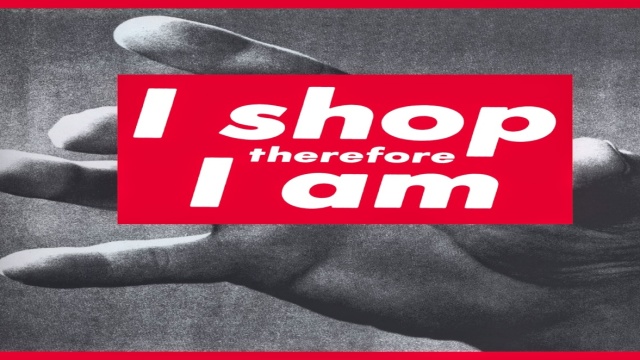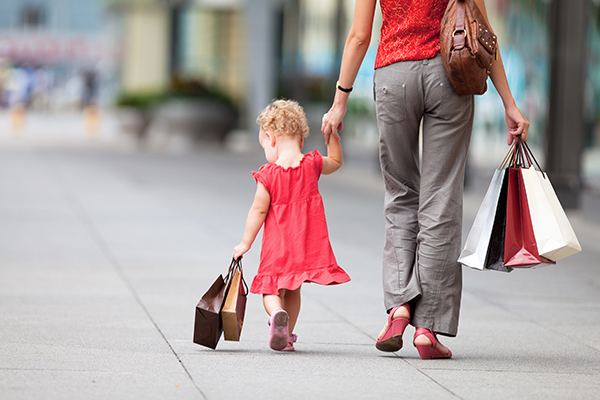We live in times characterised by hyper-consumerism and the dominance of the market ideology amidst these circumstances how can we cultivate a consciousness among young learners that transcends the ethos of consumption? Let us explore the theme in what follows below.
Kavya Thomas | The New Leam
We live in the age of hyper-consumerism, a time and space that is centred on the ever growing demands of the market. Consumption in the neo-liberal age is perhaps understood to be the most natural and convenient way of leading once life. In fact, this is an age where we believe that the more one consumes the better off one is, and the lesser that one consumes the more an exception she shall become. The moment one steps out of the house one encounter gigantic billboards of advertisement featuring products from posh cars and villas, to gadgets, clothing, food and even holiday packages. One’s email and other social networking sites are all filled with advertisements of the latest commodities- one is transported into a world where glamorous posters and billboards tend to capture the imagination from every possible angle. From the moment one wakes up to the minute one falls asleep, the market constantly accompanies us with its seduction to buy more and more.

The child who grows up in the contemporary times is certainly growing up in a time that is challenging, marketed, ruthlessly, competitive and market induced in most ways. It is a juncture in history that believes so much in the saying ‘ HAVING IS BEING’ thus one’s branded phone, a designer dress, a posh car, an expensive handbag, the choice of a holiday destination and even the profession that one takes up – are all determined by the forces of the market. Imagine having constant imageries before you, of being part of a social world where most adults confuse well being with purchasing power, where shopping alone is therapy!
For parents of children living in times such as these the challenges are greater than they ever were. What are going to be the new ethos of cultivating the child’s mind in this market induced world? How are parents, guardians and pedagogues preparing to address the challenge of this new world? Are competiveness, aggression, hoarding, self-obsession, narcissism, endless gratification of external needs, and endless consumption our only destiny or can we still cultivate a critical consciousness in young learners wherein they learn the values of sharing, collective living, living with minimum needs and remaining contented through the cultivation of inner and not necessarily outer resources?
The problem is made complex by two subsequent phenomenon one being that parents and guardians themselves are part of the vicious cycle of market induced living and secondly that with enhanced financial and educational opportunities for a large section of the population an upgraded/better lifestyle is synonymous with better consumption patterns. The idea is that firstly as parents, teachers and pedagogues we are part of the life world that we are ourselves trying to problematize and secondly very few of us are enlightened enough to learn that spiritual-holistic, contented and sustainable lifestyles are not necessarily dependent on consumption. As a result of this children and parents both cherish the idea that the market is the ultimate saviour, the therapy for all depression, the answer to all of lives questions.
The challenge is utterly complex but it is important that we acknowledge it and devise ways in which it may be addressed. The first among the many things that we must do is to free the notion of ‘childhood’ from all its accumulated dust- the dust of capitalism, the dust of adult-convenience, the dust of an impersonal legalistic discourse bereft of any soul and of course the dust of all those services and institutions which capitalise on the vulnerability of childhood. Yes, this will allow us to look at childhood as a stage in life where the impressionable young minds is as flexible as a lump of wet clay that can be moulded into any shape, as a stage that is full of innocence and wonder and a stage where love, nurturance, freedom and trust must be the catalyst of a growing mind and soul.
Childhood is simple yet profound, it is easy yet deep, it is a time when one is the closest to the nature and thus should be allowed to remain in its purity and innocence. Have we often not seen little children by the roadside play with broken utensils or tyres, or make swings on trees with abandoned clothes and invent games with pebbles and leaves? If we are narrow minded enough we would credit the above to poverty or the lack of resources but although that may have been a precursor we ought to be mature enough to look at its deeper consequences for the life of the child in the future. The smile and laughter, the spontaneity and vibrancy of the child show no signs that he misses a video game, or his life feels incomplete without the latest tablet or that he would have enjoyed more had he played in the malls play zone. Instead this child can invent games; he has no time to feel bored and unloved. He uses the basic resources (even discarded materials) to invent a new game every time, he knows how to share not because he has in plenty but because he knows that everybody has a scarcity and sharing is the only possibility. Yes, there will be moments when he would contemplate upon his situation and feel the inequality but he will be independent enough to console his heart and find meaning in what he already has, he would not need a special councillor to treat him or retail therapy to bring him back to his senses.
When we bring up our children in an ambience of indulgence we may feel we are loving them but in reality we are robbing them of the potential to live a simple life to be innovative and creative, to create out of scratch and to give meaning to life even in the most adverse of conditions. We shower our children with gadgets, comforts and amenities but seldom leave them by themselves to discover how they can creatively utilise their time when they have nothing, to be able to meet five friends and manufacture a spontaneous game, to do extremely well in an exam and be happy without a treat at McDonalds or to handle a difficult situation in life without being awarded extensively for it as if it were just as much a part as the good times? As a pedagogue I have time and again realised that we as parents and guardians often confuse our own need to fit into ‘social classes’ and peer groups with the needs of the child. We say the child will feel left out if we don’t buy her an iPhone 7 or that her birthday party will have to be in this particular restraint or that his classmates went on a holiday to Bali this summer so how can we just go to Shimla, actually these are our obsessions and insecurities as adults in the social world. Children are free of such pressures naturally, it is we who make them so ‘class conscious’ and therefore so narrow minded and closed to all other alternative avenues of happiness and meaning. When as parents we learn to say a firm ‘no’ we address many issues as once. But let me be clear that just a hypocritical negation will do more harm to the child than good. If you do not alter your own lifestyle and continue your excessive indulgence the child will be disillusioned. and will move away. The idea therefore is to collectively reduce the habits and move towards an essentially simple yet philosophically enriched culture of socialization and upbringing. This will require time for ample discussion, open hearted confessions, sharing of dilemmas and deviations and above all a constant clarity about life, its greater purpose and the identity of the self beyond what the market can conceive. Yes, if we collectively try and work towards freeing both our lives and our consciousness from the trap of market induced simulations we may be successful in bringing up children who are holistic in approach, are sensitive to the world around themselves, have a deep sense of meaning in life that is beyond materialistic things and above all who are individuals who are unique, independent and creative.
We are living in times that are violent, environmentally unsustainable, non-cosmopolitan, intolerant to differences, hierarchical and divisive – despite the fact that our economies are booming, science and technology have conquered planet earth, education and literacy rates are on the high and the world is interconnected through various media. Have we wondered why despite this apparent growth and development our miseries are still growing? Yes, the problem is at the seed level of society and the seed is none other than the individual. The individual is self-centred, narcissistic, and incapable of adjusting to diversity, too fragile to handle adversity, to selfish to share and collaborate and moreover unequipped to live with basic needs and ensure that everybody shares them. Thus there is violence and corruption, wealth and poverty, war and discontent. Educators, guardians and activists along with ordinary men and women must contemplate upon this growing paradox and work towards the ways that it can be changed. If the world is to survive in peace and harmony, its core seed( the child) must be nurtured with the water and sunshine of love, sharing, gratitude, patience and endowed with the spirit of a deeper meaning to existence that is not dependent on anything external. Children brought up in such a milieu will hold the key to a future better than the present.
The New Leam has no external source of funding. For retaining its uniqueness, its high quality, its distinctive philosophy we wish to reduce the degree of dependence on corporate funding. We believe that if individuals like you come forward and SUPPORT THIS ENDEAVOR can make the magazine self-reliant in a very innovative way.













